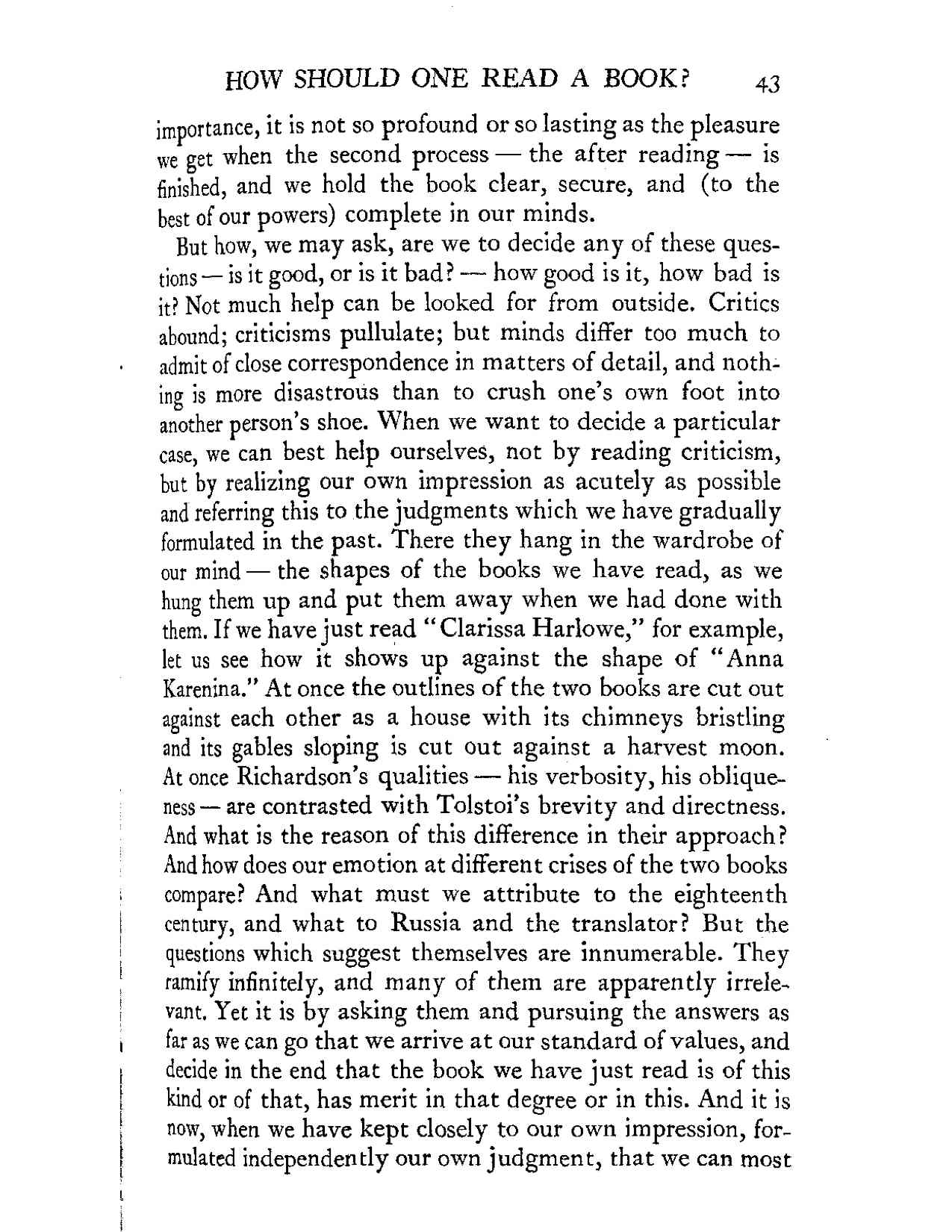
importance, it is not so profound or so lasting as the pleasure
we get when the second process—the after reading—is
finished, and we hold the book clear, secure, and (to the
best of our powers) complete in our minds.
But how, we may ask, are we to decide any of these ques-
tions—is it good, or is it bad?—how good is it, how bad is
it? Not much help can be looked for from outside. Critics
abound; criticisms pullulate; but minds differ too much to
admit of close correspondence in matters of detail, and noth-
ing is more disastrous than to crush one’s own foot into
another person’s shoe. When we want to decide a particular
case, we can best help ourselves, not by reading criticism,
but by realizing our own impression as acutely as possible
and referring this to the judgments which we have gradually
formulated in the past. There they hang in the wardrobe of
our mind—the shapes of the books we have read, as we
hung them up and put them away when we had done with
them. If we have just read “Clarissa Harlowe,” for example,
let us see how it shows up against the shape of “Anna
Karenina.” At once the outlines of the two books are cut out
against each other as a house with its chimneys bristling
and its gables sloping is cut out against a harvest moon.
At once Richardson’s qualities—his verbosity, his oblique-
ness—are contrasted with Tolstoi’s brevity and directness.
And what is the reason of this difference in their approach?
And how does our emotion at different crises of the two books
compare? And what must we attribute to the eighteenth
century, and what to Russia and the translator? But the
questions which suggest themselves are innumerable. They
ramify infinitely, and many of them are apparently irrele-
vant. Yet it is by asking them and pursuing the answers as
far as we can go that we arrive at our standard of values, and
decide in the end that the book we have just read is of this
kind or of that, has merit in that degree or in this. And it is
now, when we have kept closely to our own impression, for-
mulated independently our own judgment, that we can most






